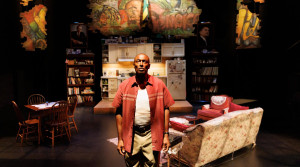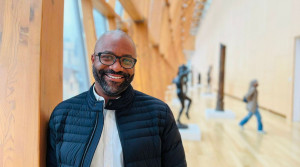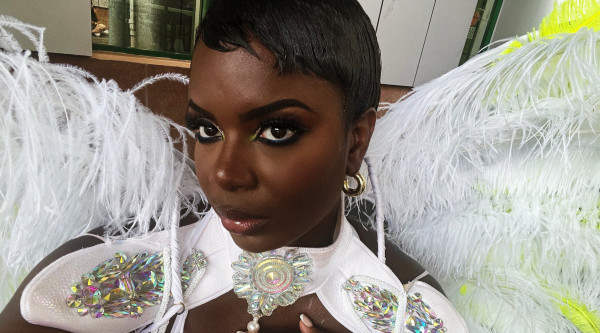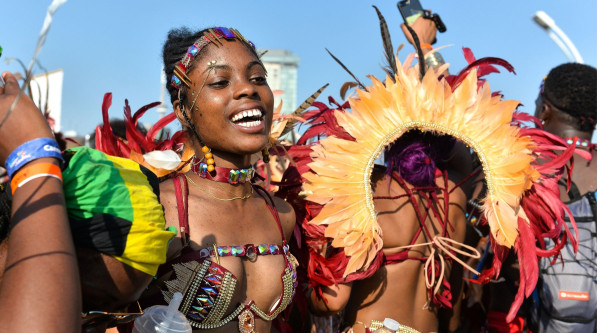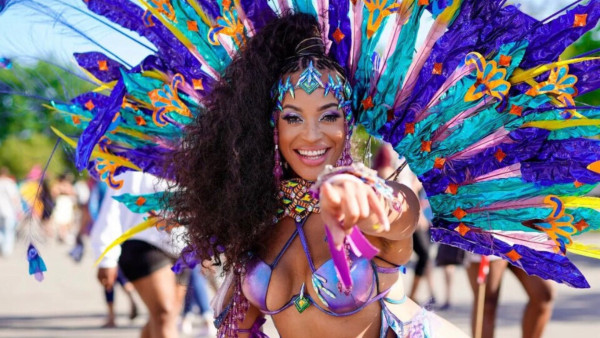From the moment I touched down in BIM (the local nickname for Barbados), even the air was pleasantly different.
It was hot and sweet with the faint smell of the Caribbean ocean. From Grantley Adams International Airport to Wyndham Grand Barbados Sam Lords Castle All Inclusive Resort, the island was decorated in bright colours and vibrant sounds, a beautiful break from city skylines and construction.
For eight life-shifting days, I was blessed to call Barbados home and participate in Crop Over's 50th-anniversary celebration.
I didn’t do it alone. I was surrounded by Black journalists and media creators from across the world, some experiencing Crop Over for the first time, while others lost count of how many times they’ve visited.
With glitz and glamour, feathers galore, fetes for days, and unforgettable soca rhythms, it’s easy to think that Crop Over is just one big party. But really, experiencing Carnival in the Caribbean is a must for Black folks because it’s a reminder, a re-grounding in the truth of who we are and where we come from.
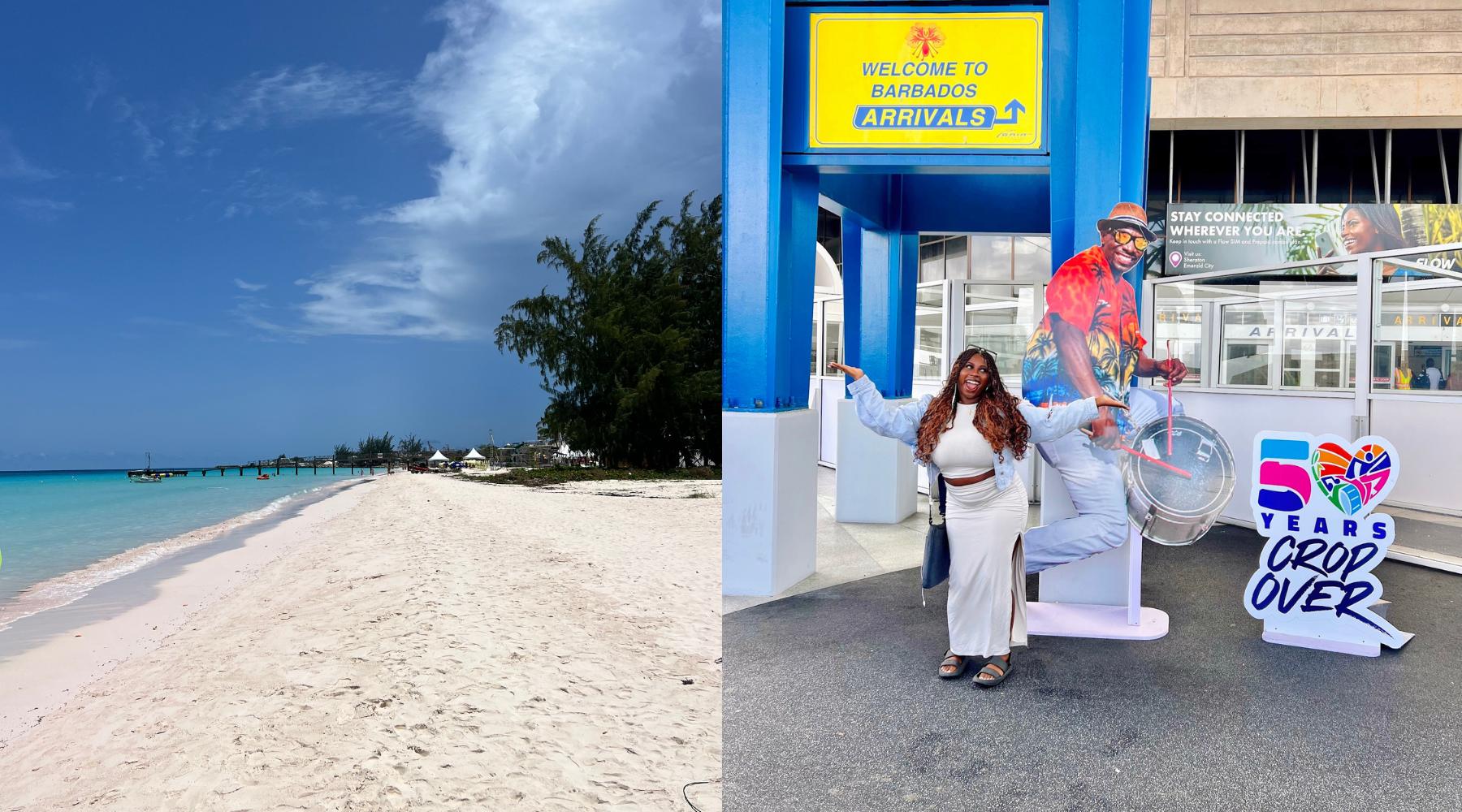
With a history dating back to sugar cane plantations during slavery, Crop Over is the huge celebration that marks the culmination of another successful sugar cane harvest. In the 16th and 17th centuries, Afro-Barbadians merged colonial practices with African traditions to create the Crop Over season we know today.
I learned more about Crop Over during an informative culture day led by Bajan artists and historians, courtesy of the Barbados Tourism Board.
The day was full of costume making, tuk band playing and Bajan foods.
A tuk band is a Barbadian musical ensemble that plays tuk or rukatuk music. It has a double-headed bass drum, triangle, flute, and snare drum. Travellers learned to play instruments, and Bajan musicians led the group.
{https://youtu.be/z0mmUtNw-kU}
The sounds which are indigenous to Africa but played on European instruments, have an undeniable rhythm, pushing the crowd to tap their feet, sway and bust a whine.
When it came time for our pottery class, we used Barbadian clay to make tableware and jewelry boxes, led by Hamilton's Pottery Barbados, a popular shop on the island.
My favourite excursion was on the catamaran. Setting sail on Bajan waters, we made our way to the outskirts of a beach where we anchored and snorkeled, exploring alongside fish, turtles, and even jellyfish. My skin was glowing from the salt water and sun's embrace. Barbados has some of the most clean and beautiful beaches I’ve ever seen.
It wouldn’t be Crop Over season without attending a few fetes, and the morning events were quite an extraordinary experience.
“Mimosa Experience” is the ultimate Bajan party, with brunch foods, mimosas, and some of Soca’s best performances. Covered in colourful decorations, with food and alcohol tents placed alongside the dance area – music booms out for miles with festival-goers worldwide.
Then there was Neon Carnival J’ouvert – my dream J’ouvert experience. Celebrated throughout the Caribbean, the event begins in the early morning, before dawn, and peaks by mid-morning. Revellers were drenched in a rainbow of chalk and paint colours as we walked through the Bajan countryside. Watching the sunrise amidst grass fields, the booming sound of soca and smiles decorating the streets for miles was just magical.
{https://www.tiktok.com/@itsimaani/video/7407440989520022789}
Grand Kadooment Day was the real showstopper. Hundreds of locals and travellers woke up before sunrise to dress in mas costumes. With bright makeup, secured headpieces, and of course, tied closed-toe shoes, revelers started on road as early as 9 am, making their way through the island and back until the evening.
Hydration is the key to endurance throughout the day. I stuck to water and the Caribbean medicine of ginger ale, but many revelers made their way through the parade by the grace of alcohol trucks, food vendors, and good vibes.
As a first-time attendee, nothing could have prepared me for the day-long workout. For other first-time attendees, this was the moment they’d been counting down to for years.
“It was phenomenal. I’ve been trying to do Barbados Crop Over for years now. I wanted to come in 2020 but then the world came to an end due to the pandemic so the fact that I’m able to make this happen now in 2024 is a dream come true. To first-time travellers, make sure you have extremely comfortable shoes. Don’t try to look too cute. Hydration is key. I wore sunscreen and I’m still burnt,” said Stefan Keyes, a Canadian TV news journalist from Ottawa.
{https://www.instagram.com/p/C-IyZR4RcfH/?locale=nl&hl=af}
Another standout of the day was the intricate details of the costumes from each band in the parade.
{https://www.instagram.com/p/C-Y2OAAsSEp/?locale=nl&hl=af}
“One thing I love about Caribbean style is there’s always a lot of colour. There’s a lot of mesh. There’s a lot of patterns and pattern mixing. Very joyful and joyous. It can be a little scandalous sometimes, but I love it. Colourful makeup and everyone always smells good,” said Jihan Forbes, a New York-based journalist and frequent masquerader.
{https://www.instagram.com/p/C-U8KpoOcV2/?locale=nl&hl=af&img_index=3}
For the Bajan-Canadians on the trip, celebrating the 50th anniversary of Crop Over was a monumental experience.
“What does it feel like to be back? It’s always a beautiful experience to be back in your homeland. I feel very comfortable in Barbados even when I come outside of Crop Over, it’s easy for me to just get on the public transit or in a mini-van and it just feels like home,” said Lateisha Williams, also known as Carnival Bae, a certified carnival chaser.
{https://www.instagram.com/p/C-knBDuRzuJ/?locale=nl&hl=af}
“Mas, soca, it really is just love to me. I always say Carnival is love, that’s one of the things that I live by. I just love to see people enjoying festivities together. The energy is always positive, you’re not upset when you listen to Soca so I just love seeing everyone in the same place and it just motivates me to keep going – tired and all,” she said.
During a breakfast conversation on our final day, Williams and I discussed why “freeing up” is a necessity for Black communities.
“We’ve been held down, we’re always held down by systems, by other people we interact with. Mas, jump-up, festival, Carnival – it’s for us, by us. It’s one of the only things that are made for us, by us where we’re catered to – so it matters more than anything,” said Williams.
For more information head to https://www.visitbarbados.org/canada.
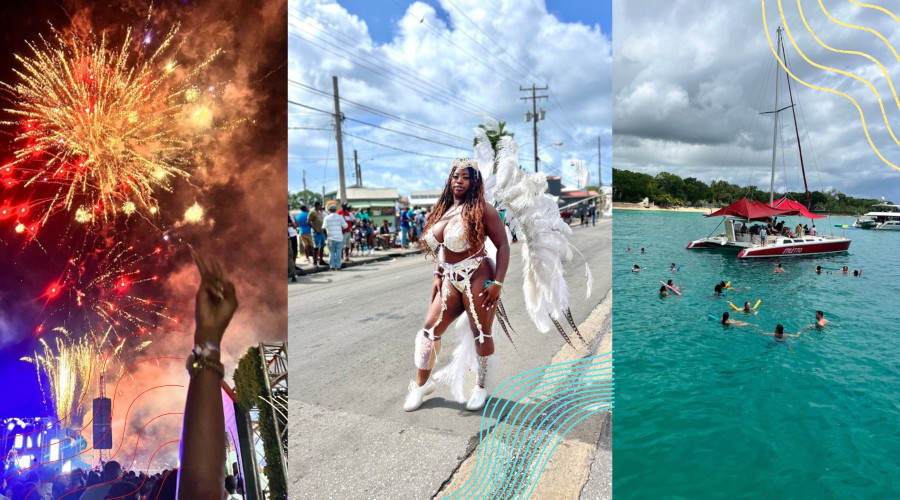
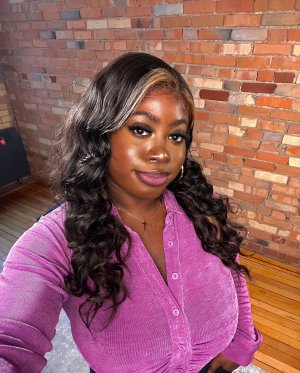 By
By 




